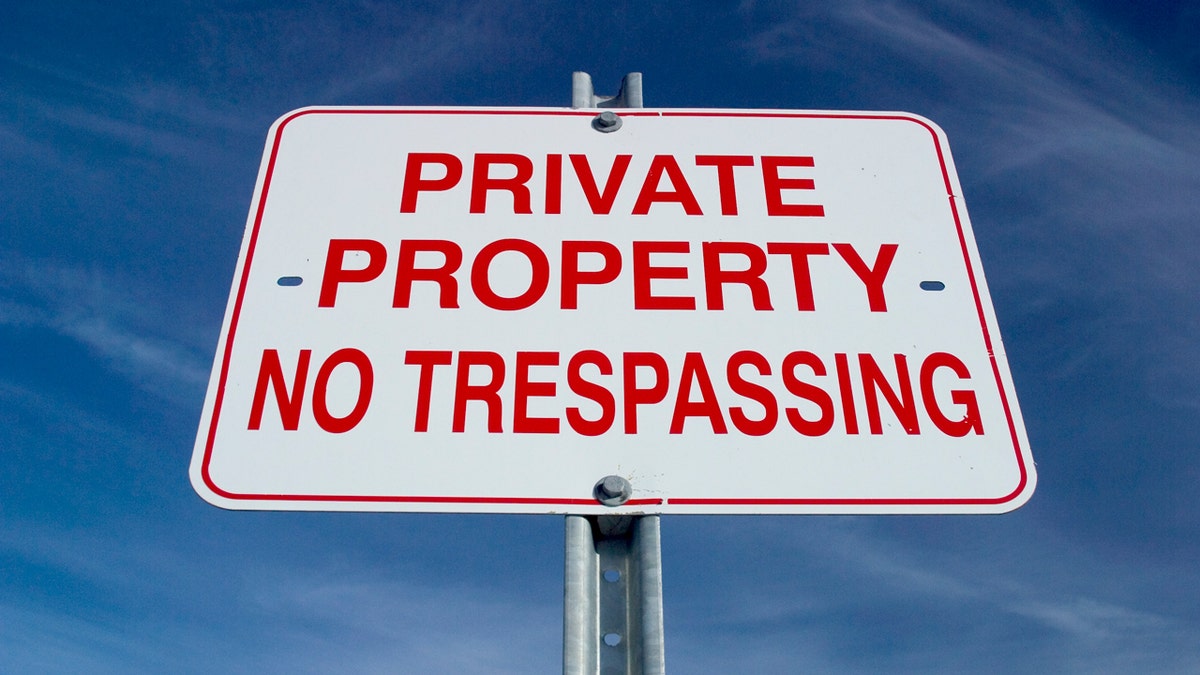Laws regarding squatters vary on a state-by-state basis. In California, ownership could be granted to a squatter who pays taxes on a property for five years through adverse possession and tenancy rights could be granted after 30 days.
One of the latest squatter stories out of California was reported by Fox News Digital in September, after two Hollywood Hills mansions were overtaken.
“I would like to apologize to the people of Los Angeles, and especially to my neighbors. What’s happened to the two properties I own is unacceptable, and no matter what caused it, I own the houses,” John Powers Middleton, film producer and son of Philadelphia Phillies owner John S. Middleton, previously said in a statement sent to Fox News Digital.

Squatter laws in California allow for adverse possession to potentially be claimed after five years, and tenancy rights are often granted after 30 days of a squatter living on a property. (iStock)
WHAT ARE NEW YORK’S SQUATTER LAWS? LEGAL EXPERT SHARES THOUGHTS ON WHAT MORE CAN BE DONE TO PROTECT LANDLORDS
“What’s happened to my property is criminal, and I hope everyone caught will be prosecuted to the full extent of the law. No one in Los Angeles should have to put up with squatters and vandalism that are out of control,” Middleton also said.
In March, Fox News Digital reported on a $5 million Beverly Hills home that was invaded by squatters. The real estate agent of the home called the police, but was told that it was a “civil matter” at play, as the squatters had what they claimed to be a rental agreement.
Squatters providing false documentation isn’t uncommon.

It’s not uncommon for squatters to create false documents. (iStock)
ALABAMA REALTOR SHOCKED WHEN SQUATTER GREETS HER AND POTENTIAL BUYERS AT HOME SHOWING
“These squatters are very clever, and they will come up with fake leasing documents or a fake story about how someone let them in, the landlord let them in,” Daniel P. Phillips, a real estate litigation partner at Belkin, Burden and Goldman in New York, previously told Fox News Digital.
Several California-based law firms note on their websites that after 30 days, ownership can not be granted to a squatter, but tenancy rights can be.
Once a landlord provides a squatter with a written notice to vacate the property and they don’t leave, an unlawful detainer lawsuit has to be filed with the court. Trials often take several months to reach a conclusion.
While squatters cannot gain legal ownership of a property after 30 days, they could gain ownership through adverse possession after five years of paying taxes on the property.

In many squatter cases, landlords have to file an unlawful detainer lawsuit in order to have them removed. (iStock)
ADVICE FROM PROFESSIONALS ON PROTECTING YOUR HOME AGAINST SQUATTERS
Adverse possession, which has become known as “squatter’s rights,” is not unique to the state of California, but each state does have a different period of time and other requirements regarding when it could be claimed.
Adverse possession doesn’t always relate to a squatter. It could also be claimed unintentionally, such as in the case where a homeowner puts up a fence to mark property boundaries, but accidentally dips into their neighbor’s land. The homeowner who constructed the fence could claim adverse possession of the land they built on.
There are general requirements that are typical for each state, including the possession being open and notorious, but specifications like how long someone, such as a squatter, must be in possession of the land vary. In California, five years of occupation and payment of taxes is required, according to FindLaw.com.
One California resident has done a deep dive into the squatter laws in the state to recognize how squatters are able to reside in homes and has created an extremely unique name for himself as the “Squatter Hunter.”

Many disputes between homeowners and squatters are brought to court. (iStock)
HANDYMAN WHO TURNED THE TABLES ON SQUATTERS CLAIMS HE’S HACKED THEIR SYSTEM AND CAN HANDLE YOURS TOO
The “Squatter Hunter,” whose real name is Flash Shelton, dealt with squatters personally when his mother’s home was overtaken. When he reached out to law enforcement, he was told the matter was a civil one.
After researching the laws, he flipped the script by using them in his favor.
“I learned everything about squatters over the course of a few days… I figured out that if I could establish the rights [to the home] before them and I could switch places with them and become their squatter, then that would work,” Shelton previously told Fox News Digital.
“It was just switching places with them, becoming their squatter, locking them out, putting up cameras and telling them that I would prosecute if they broke back in — [that] was enough,” he also said.
Shelton’s story went viral on social media, and he now helps others who find themselves in a similar situation to the one his mother was in.

Flash Shelton, who helps people evict squatters from their homes, previously spoke with Fox News Digital about how different laws could help protect homeowners. (iStock)
CLICK HERE TO GET THE FOX NEWS APP
He has also spoken about law changes he feels would help protect homeowners.
“The states that are friendly to squatters — those squatters are just assuming tenant rights. So what we need to do is separate it out,” Shelton told Fox News Digital. “And if somebody enters a house illegally, regardless of how long they’ve been there, that should be a crime.”






